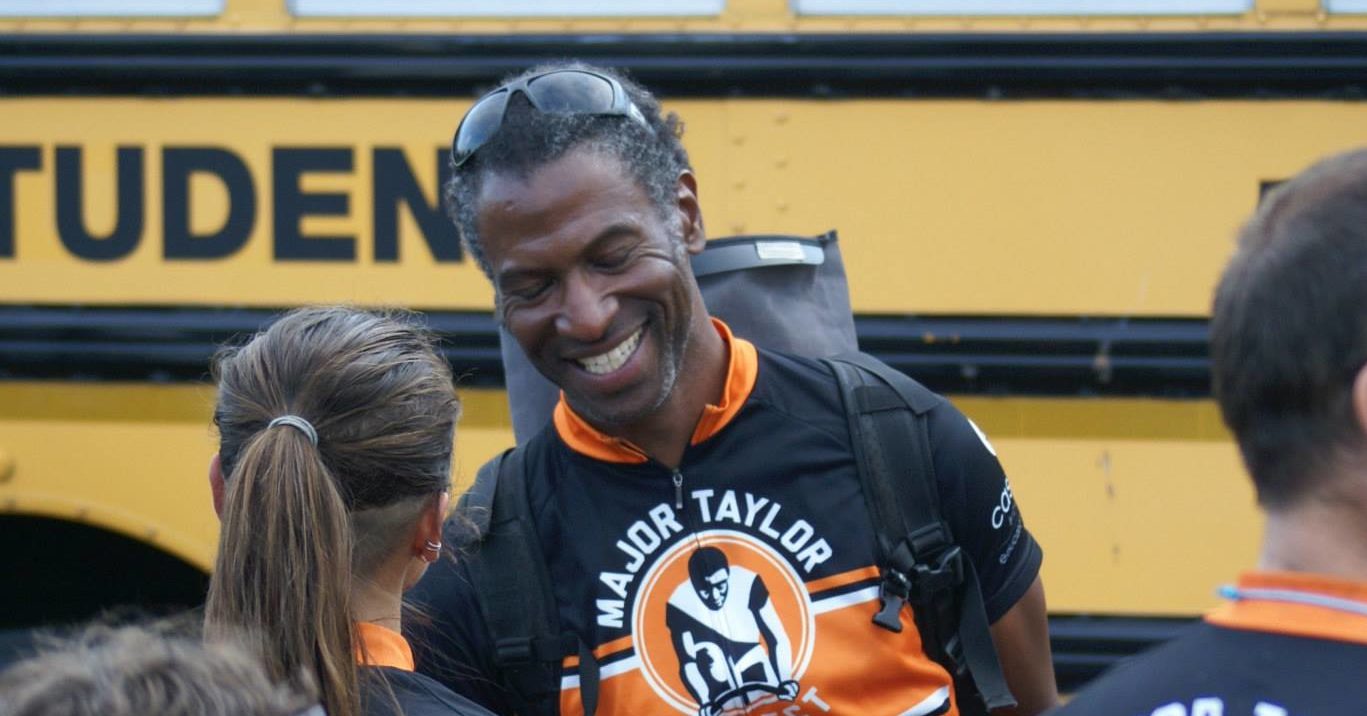 Ed, Executive Director of Bike Works, sees the bicycle as a tool to connect with and empower youth.
Ed, Executive Director of Bike Works, sees the bicycle as a tool to connect with and empower youth. In coming months we’ll share conversations with community leaders who are committed to making safer streets and stronger communities in Seattle. These people are rooted in their communities, amplify the voices and values of their neighborhood, and impact how people move around Seattle.
Today, we want to introduce you to Ed Ewing who’s the Executive Director of Bike Works.
The bicycle has been a constant force in Ed’s life. Growing up in Minneapolis, Ed spent summer weekends biking around the lakes of Minneapolis with his family and watched his dad bike commute to work each day. In high school, Ed’s bicycle was his main mode of transportation and he enjoyed powering himself around the city, finding new neighborhoods to explore, and navigating his way back home. Biking brought him confidence, fitness, and was a source of freedom and mobility.
After over a decade working in the private sector, Ed took an opportunity to turn his passion for bicycling into a career. He joined Cascade Bicycle Club to start the Major Taylor Project that empowers Black, Brown, and low income youth through bicycling. The goal of the Major Taylor Project is to use the bicycle as a tool to connect with youth, surround them with mentorship, and help them learn and grow.
Ed recently became the Executive Director of Bike Works, a local nonprofit that uses bicycles to educate and empower youth and make bicycling accessible and affordable to the Seattle community.
We had a conversation with Ed to learn more about Bike Work’s racial equity work and how SDOT can better support the goals of Black, Indigenous, and People of Color (BIPOC) communities and people who want to ride bikes.
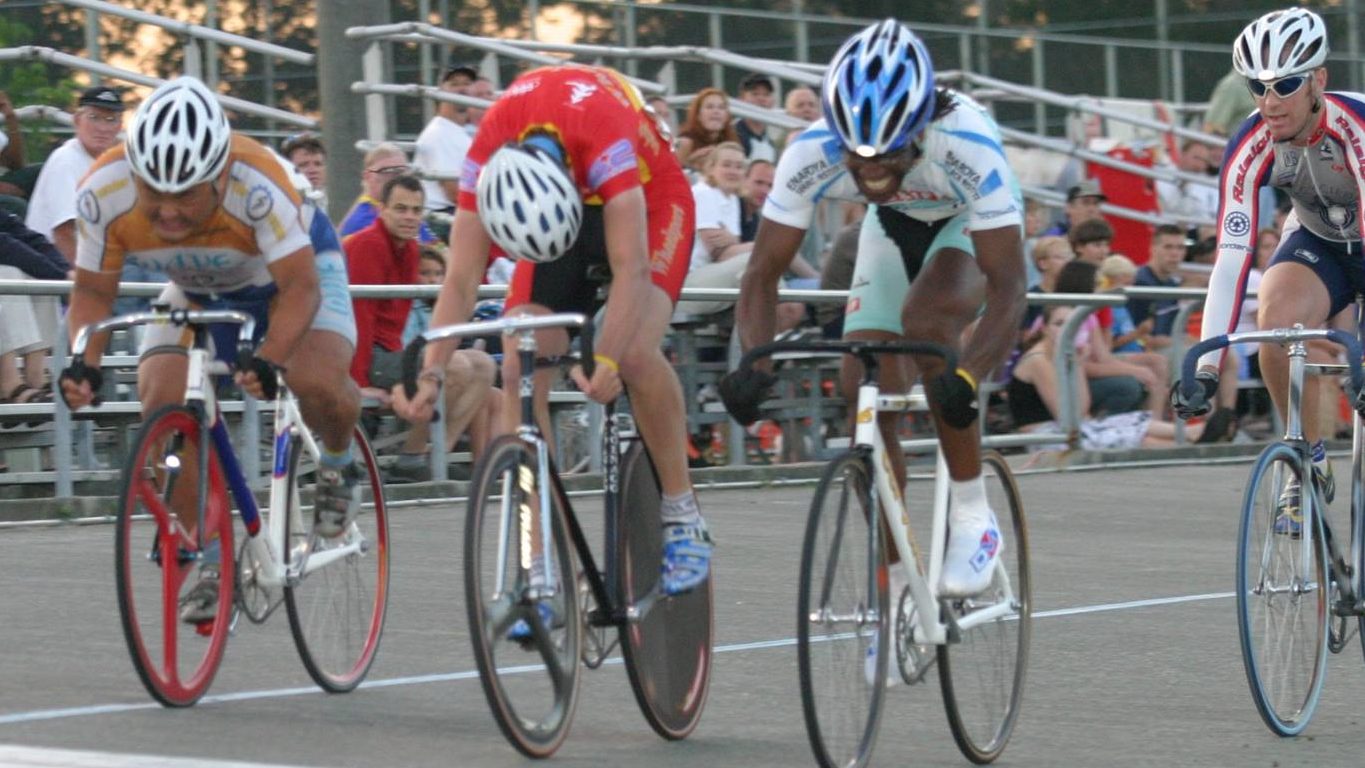
Hi Ed, you recently became Executive Director at Bike Works, but you’ve been involved with the organization for a while now. Can you tell me about your involvement over the years?
In the fall of 2019, the former Bike Works Executive Director reached out to me and asked if I would join their Racial Equity Committee. This was a new committee comprised of Bike Works staff and community leaders from Skyway, Columbia City, and Rainier Beach. We were all people of color, compensated for our time, and met for a year to discuss Bike Works’ commitment to racial equity and what we’d like to see the organization become.
What we shared was integrated into Bike Work’s overall strategic plan, rather than a separate racial equity plan, so our entire strategic plan has a racial equity lens and filter.
That experience was the first time I’ve been part of an organization that fully integrated their racial equity plan in their strategic plan. Often, the racial equity plan is something second and separate from the day-to-day work plan. But, if the racial equity commitment is infused your strategic plan and work plan, then it’s part of how you make decisions. And that, to me, is how you get the best results.
I like the saying, “hard stuff is hard.” But, when it gets hard, it likely means these are the right conversations we should be having.
Ed Ewing
When did you join Bike Works as staff?
In August 2020, amidst the pandemic and racial awakening, I joined Bike Works as the Deputy Director.
During my time on the Racial Equity Committee, I shared that I didn’t want to join another organization in a sole Diversity, Equity, and Inclusion (DEI) role. A lot of organizations create DEI specialist positions. That’s a good step, however, in my experience, DEI roles need to have influence. They should be a bigger role like a Deputy or Executive Director with DEI responsibility. Because that way they have gravity, influence over budget, and can get things done.
I was impressed that Bike Works, and the leadership at the time, took my comments seriously and created the Deputy Director position. This past January I became Executive Director.
As tumultuous as 2020 was for all of us, I never would have imagined that I would have landed a job that suits me so well, combining my experience at Cascade Bike Club, Seattle Parks Foundation, and the influence the bicycle has had in my life since childhood.
What are some of the driving factors behind Bike Work’s approach to racial equity and accountability?
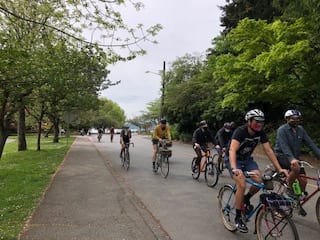
We’ve embedded ourselves in Columbia City and in the community for 25 years now, and we’ve stayed in a mindset of continuous improvement. Our commitment to racial equity never stops.
First, we’re focusing on our board of directors. Our commitment is to have the diversity of our board reflect the diversity of Columbia City. We’re looking at racial diversity, socioeconomic diversity, and gender diversity.
The next step is to look at our staff. As we’ve hired new people, we’re very explicit that we want applicants and candidates of color in these roles. We don’t stop there, but have asked ourselves, “do we have the right environment that will support, sustain, and encourage racial equity, and equity period, in the organization?”
It’s one thing to attract diverse candidates, it’s another thing to create an environment supports, encourages, and sustains diversity as part of its fabric. That’s what we’re actively doing right now and we’ve made significant steps in that in the past six months.
Part of doing this is not backing away from hard and authentic conversations, and instead holding space for those hard conversations. I like the saying, “hard stuff is hard.” But, when it gets hard, it likely means these are the right conversations we should be having.
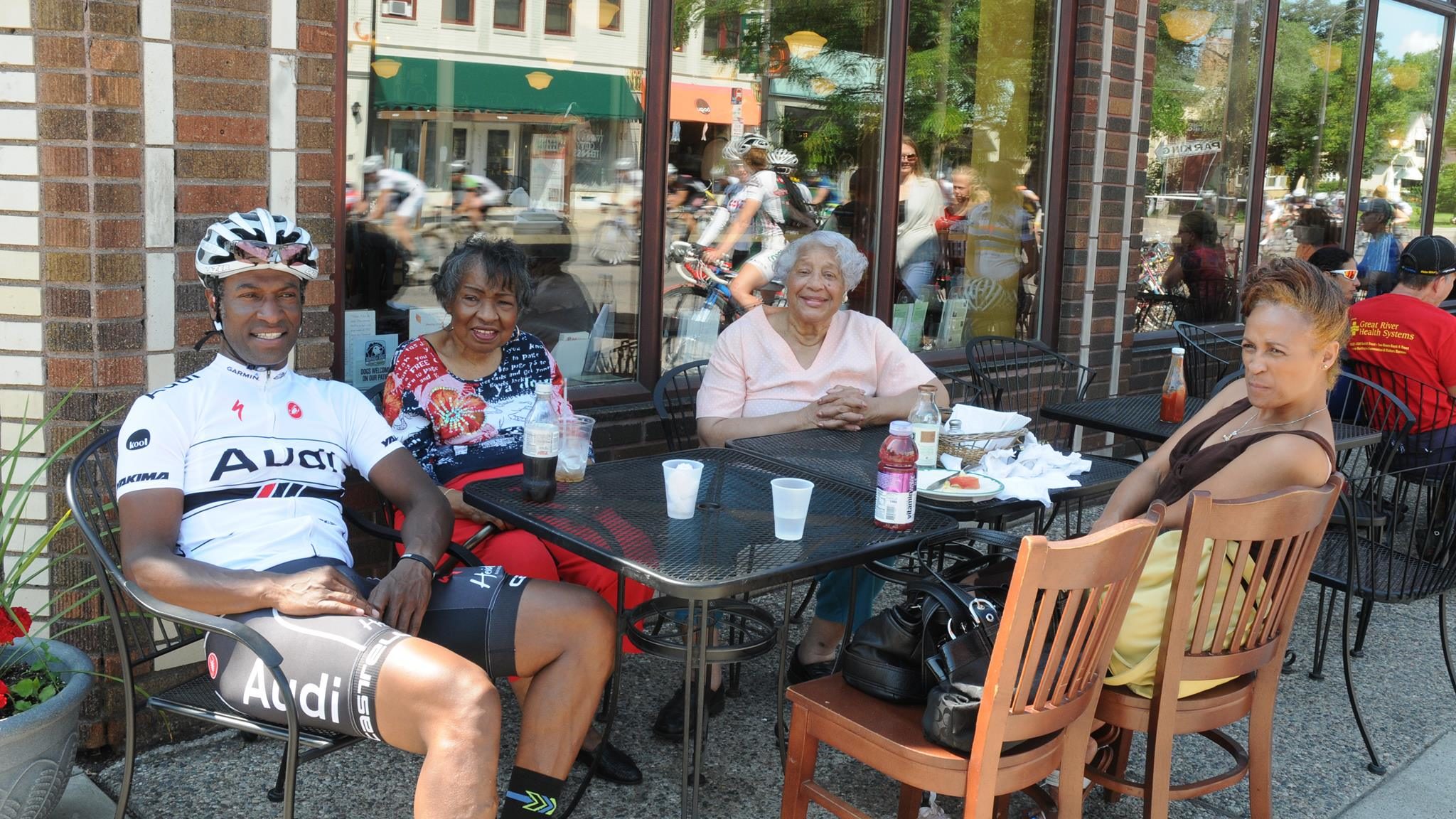
How do you think SDOT can better support BIPOC people who want to ride bikes?
I think one of the best things SDOT can do is to partner with community-based organizations. That’s the most authentic entry and point of partnerships with and in communities of color.
Come with an intent to listen and learn how the community currently moves through the city and figure out ways support them where they are. It may be biking, it may be something else. Take time to learn and understand the existing goals of the community. If one of the goals of the community is to develop strong healthy families or vibrant families, then that’s the entry right there.
People regardless of color, gender, or age want to ride bikes. Supporting people where they’re at goes back to authentic community engagement.
Ed Ewing
We often hear that bike lanes are a sign of gentrification. What’s your reaction to that as we try to support people in all communities who want to bike?
Bike lanes can be a symptom of gentrification, but developers and development are the source of gentrification. I was just talking to someone about 23rd Ave and E Union St and how I don’t even recognize that area anymore. Bike lanes didn’t do that, developers did. The bike lane is just an accessory. It’s a very tangible lane that people can see, so a lot of heat and attention go there, but it’s not the bike lane that caused gentrification.
People regardless of color, gender, or age want to ride bikes. Supporting people where they’re at goes back to authentic community engagement.
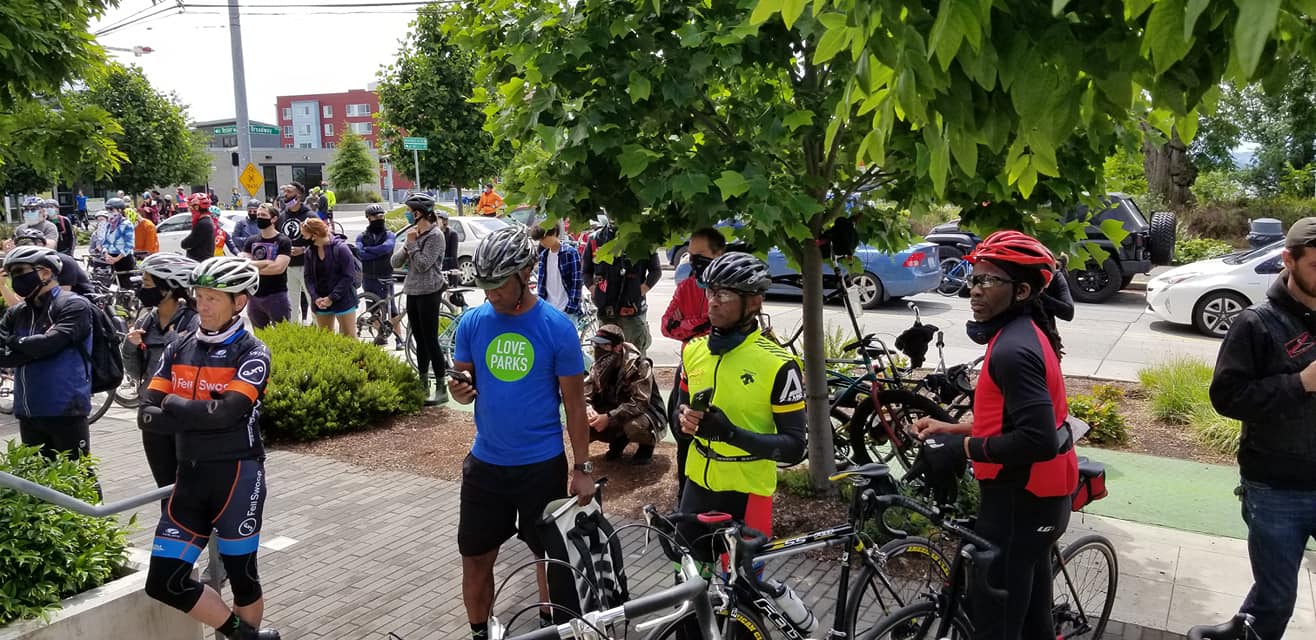
What advice do you have for people who want to start riding their bike?
Just do it!
One positive that came out of 2020 is seeing so many more people on bicycles and e-bikes. Since bicycles were deemed as an acceptable and safe activity, people are becoming reacquainted with their bicycles
A lot of social groups have popped up, like Peace Peloton and North Star Cycling, which are easy entries for people to get back on their bikes.
If you’re interested in starting to ride, check out these groups, have a conversation, and show up. North Star Cycling even has bikes for you to ride! You’ll often find that it’s the community and the social connection that bring people back to biking and keep them connected.
Visit Bike Works to learn more about their youth and young adult programs, make an appointment at their bike repair shop, and find out ways to support their mission.
Stop by the the Bike Works Mobile Bike Shop on Bike Everywhere Day, May 21. It will be parked near the West Seattle Bridge with Sal the SpokesSalmon and West Seattle Bike Connection.
Also, join Sal the SpokesSalmon on a Peace Peloton ride on May 20 that ends at Jones BBQ in West Seattle.